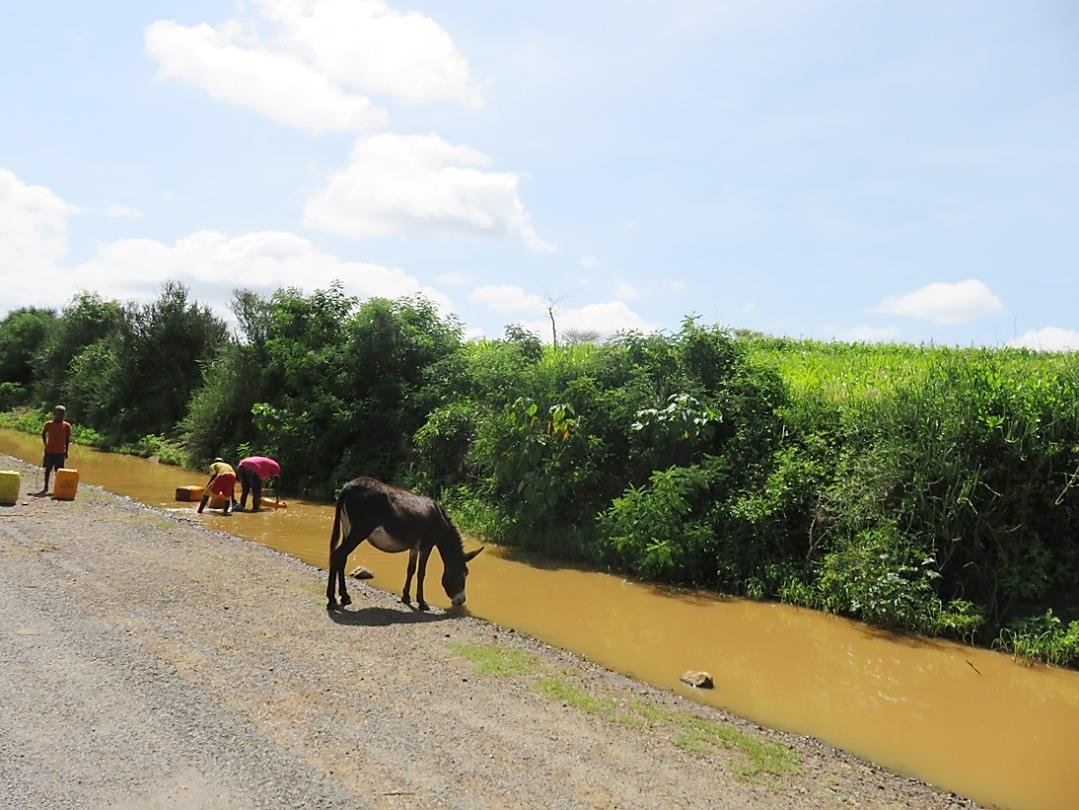
by Fern Shaw | May 31, 2016 | Charity, Christian Aid, water cooler, Water Coolers
It’s not often that I can say that I’m truly overwhelmed. I may drama queen a little about being overwhelmed but that’s not often the case.
What I did find truly overwhelming was my recent nine day visit to Ethiopia at the behest of AquAid and at the invitation of a charity which AquAid have for years supported; Christian Aid.
Having worked in water provision and in close conjunction with the charities that AquAid support for a few years now, this is a matter that has taken on a great significance to me, as well as, I’m sure, everyone at AquAid. I’ve experienced daily how important it is to balance the business side as well as maintaining and perpetuating Paul Searle’s (AquAid’s founder) holistic philosophy of giving back. On the trip, though, I experienced this philosophy first hand.
Ethiopia is a magnificent country, that’s the only way that I can describe it. The Ethiopians are among the kindest, most hospitable and polite people I’ve met in my travels; the country is vast, the scenery is awe inspiring and the industriousness of the people is truly something to witness.
After a briefing at the Christian Aid offices in Addis Ababa, we departed on the first leg of our journey to visit the first of four projects in the south of the country. As our amazing driver, Girma, who would put any F1 driver to shame, negotiated his way through an endless progression of pedestrians, other road users which also included herds of cattle; sheep and goats as well as donkey, mule and horse carts, I observed something interesting. Every mile or so there were people walking. Not a gentle lollygagging type of walk, but walking with determination. Most were carrying yellow containers. Many of these people were very young children, some who looked to be no older than seven or eight years old.
When we passed a puddle on the side of the road, a river, a stream, there were people collecting water. I have no idea how many miles these people walked every day, but I imagine it was a good few miles at least. They shared the puddles with all manner of others including animals. These puddles were open to the elements, unprotected and quite a few puddles alongside certain stretches of road had all the detritus from the road and its passing traffic landing in them.
- The magnitude of what I was witnessing struck me – here is a country that has water in abundance (Ethiopia has more vast lakes than you can shake a stick at), but a large majority of its inhabitants live and work hundreds of miles away from these large sources of water. They are dependent on the weather – their water source more often than not from the rainfall; and the country experiences dry months for eight out of the twelve months of the year.
- This is where charities such as Christian Aid come in and have been doing so in the country since 1998 when they set up an office in Addis Ababa. Christian Aid and AquAid have been working in partnership since 2001, bringing relief and sustainable water provision to those in need around the globe.
We witnessed five such projects during our trip which I will detail in further articles, but having being there, the importance of having water or indeed, having access to water, truly struck home. Here were thousands of people to whom the struggle for water, stuff of life, wasn’t a turn of a tap or a press of a button away. Here, having water meant a day to day survival, where if you wanted water, you strapped plastic containers to yourself and you started walking, for miles and miles, looking for the precious stuff. You may get ‘lucky’ and find a big enough water puddle from which you could fill your containers, often you would not.
What also occurred to me (during and post trip) is how invaluable it is to have companies such as AquAid and even more invaluable – our customers who support AquAid. Because I truly witnessed the results of what charity means. For every person from each community that we visited who had water to drink, water to cook with, water to water their livestock and their crops, this was a direct result of donations to charity. Life changing stuff.
If you’d like to find out more about how your water cooler and bottled water purchases can make a difference to people’s lives (and I mean this literally), please get in contact. We’d love to hear from you.
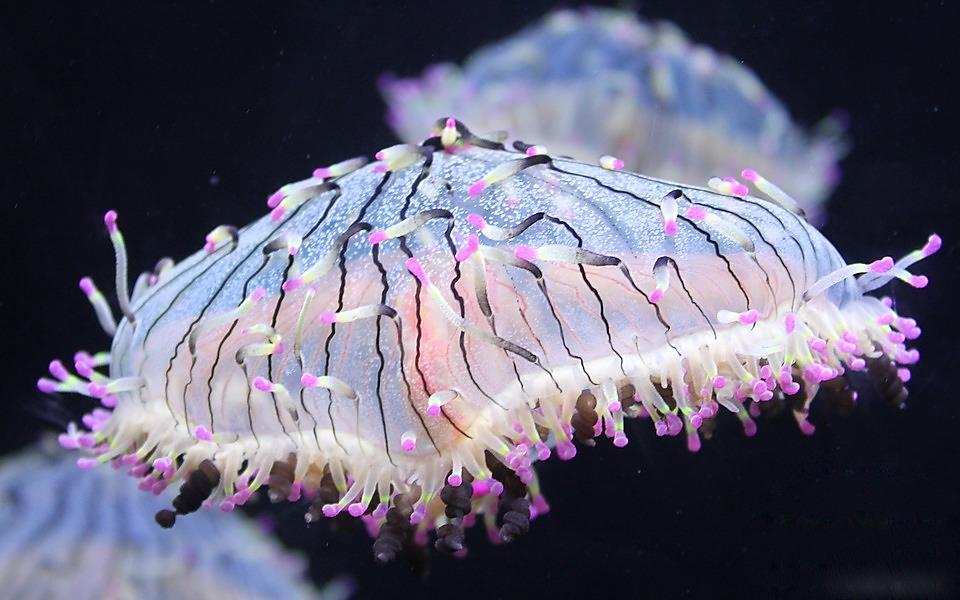
by Fern Shaw | May 10, 2016 | Uncategorized
Jellyfish and me – we don’t have the happiest co-existence historically – jelly, totally different story. Mulberry and orange flavoured jelly remain my favourites, but before I get sidetracked …
The unfortunate history began with summer hols at the ocean, wonderful soft sand beaches, monster waves, and oftentimes, a beach littered with jellyfish called blue bottles or are they are otherwise known – the Portuguese Man o’ War. Fierce creatures these, with an absolutely awful sting and to make matters worse, if you encountered the ‘stinger’- they’d continue to sting you repeatedly. I think we called them blue bottles because, well, they were blue – and a very pretty blue too. According to the wonderful Wiki though, it turns out that blue bottles are not really jelly fish – although they closely resemble them, but are in fact a species called a siphonophore, which is distinguished from jellyfish in that it is not a single multicellular organism, but a colonial organism made up of specialized minute individual organisms called zooids. Anyhow, suffice it to say, I really did gasp and cringe in the scene in ‘Finding Nemo’ when Nemo and Dory are trapped in the flotilla of pretty pink jellyfish – I felt their (nonsensical imaginary animated creatures) pain!
That’s your biology update for the day sorted then.
The amazing glow in the dark jellyfish was recently spotted during a deep water exploration mission of the area being conducted in the Mariana Trench. The Trench is the deepest part of the world’s oceans. It is located in the western Pacific Ocean, to the east of the Mariana Islands. The trench is about 1,580 miles long but has an average width of only 43 miles. It reaches a maximum-known depth of 6.831 miles.
While experts were able to identify the jellyfish as belonging to the genus Crossota, they are unable to assign a precise name to the pretty hydromedusa.
They filmed the jellyfish ‘floating’ through the depths with its long tentacles extended outwards and its bell motionless, suggesting ‘an ambush predation mode’.
It is thought the red colour in the bell is the creature’s radial canals, while the bright yellow may be its testes. So the photographed jellyfish may (or may not) be male.
Other deep sea life was also captured on film but so far, in this exploration, it seems as if the jellyfish is a hereto previously undiscovered species.
Although I can’t wait to share the news with my colleagues on my next water run, I must say, there’s a part of me that wishes that perhaps it would be better if such wondrous creatures were better left undiscovered, to continue their unknown existence in all their dark, watery wonder.
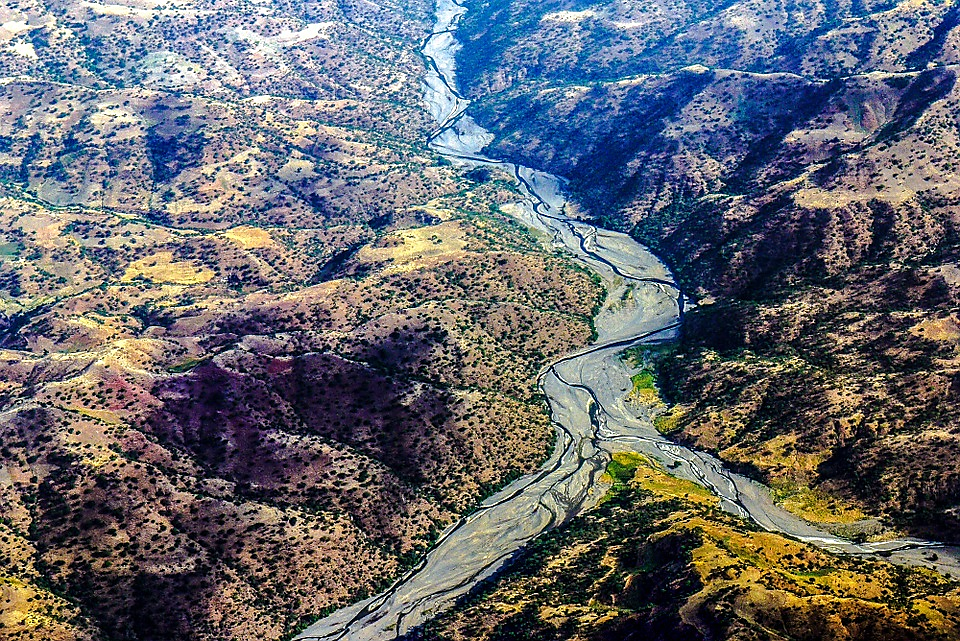
by Fern Shaw | May 4, 2016 | Charity, Christian Aid
Ethiopia is without a doubt one of the most fascinating countries on the African continent. It has an incredibly ancient and cultural history and is believed to be (by some) to be a cradle of civilisation and the birthplace of Christianity.
Addis Ababa is Ethiopia’s capital city. It means ‘white flower’ and, at 2 400 m above sea level, it is the 4th highest capital city in the world.
The Great Rift Valley cuts through Ethiopia from northeast to south of the country and is the only physical feature of Africa that it visible from space.
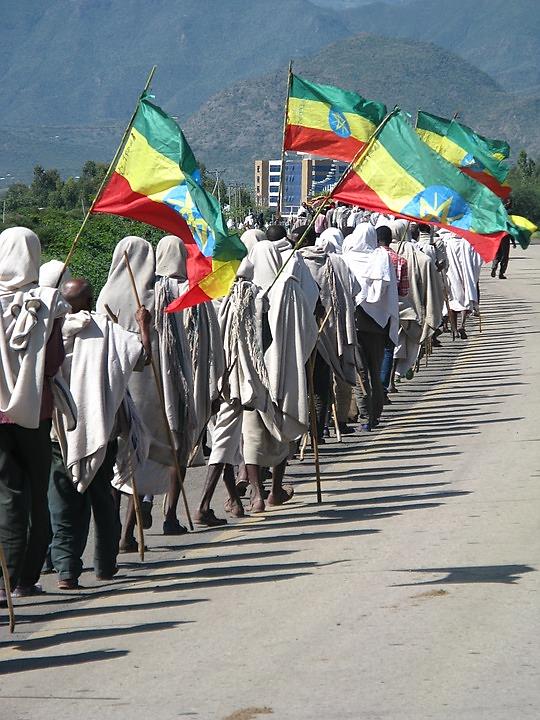 According to legend, the True Cross on which Jesus Christ was crucified was found by St. Helena – the mother of Constantine the Great, the Roman Emperor who converted to Christianity – in the 4th century. A relic of that cross was later given to Ethiopia’s kings for protecting Coptic Christians in their country. Meskel celebrates the arrival of the True Cross in Ethiopia and has been celebrated there for more than 1,600 years.
According to legend, the True Cross on which Jesus Christ was crucified was found by St. Helena – the mother of Constantine the Great, the Roman Emperor who converted to Christianity – in the 4th century. A relic of that cross was later given to Ethiopia’s kings for protecting Coptic Christians in their country. Meskel celebrates the arrival of the True Cross in Ethiopia and has been celebrated there for more than 1,600 years.
Ethiopia is considered the originator of honey wine, or t’ej, which the rest of the world knows as mead.
More than 70% of Africa’s mountains are found in Ethiopia. It is sometimes called ‘the roof of Africa.’
Ethiopia was the first African nation to join the League of Nations.
The Garima Gospels, the oldest illustrated Christian book, is in Ethiopia. It was written about A.D. 494 by the Abba Garima, a monk who arrived in Ethiopia from Constantinople (present-day Istanbul). According to legend, he wrote the book in one day.
Ethiopia is home to the Black Jews, known as the Falashas or Beta Israel (House of Israel). Various legends claim they are a lost tribe of Israel or descendants of King Solomon.
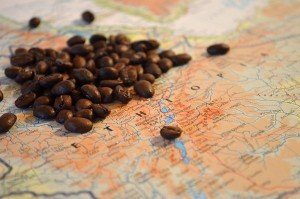 Coffee was first discovered by an Ethiopian goat herder named Kaldi in the Kaffa region, from which the word ‘coffee’ may derive, when he noticed his goats ‘dancing’ after eating the berries off the coffee plant. Coffee is the top agricultural export for 12 countries, with the livelihood of over 100 million people depending on its production, and it is the world’s second most valuable commodity after petroleum.
Coffee was first discovered by an Ethiopian goat herder named Kaldi in the Kaffa region, from which the word ‘coffee’ may derive, when he noticed his goats ‘dancing’ after eating the berries off the coffee plant. Coffee is the top agricultural export for 12 countries, with the livelihood of over 100 million people depending on its production, and it is the world’s second most valuable commodity after petroleum.
Emperors ruled Ethiopia until 1974 and all claim to be descendants of King Solomon of the Bible and Makeda (Ethiopian Queen of Sheba). Haile Selassie I was the last Ethiopian emperor.
Ethiopian emperor Haile Selassie I is considered the son of God among the followers of the Jamaican Rastafaria religion. In fact, the name ‘Rastafari’ originates from the emperor’s birthplace, Ras Tafari, which means ‘Prince Tafari’ in Amharic. Bob Marley was one well-known Rastafari. Although the Rastafari movement did evolve in Jamaica, it began in Ethiopia.
The Abyssinian cat breed, which originated in Ethiopia, ranks within the top ten most popular pedigreed cat breed in the U.K.
Lucy, a human fossil believed to have existed over 3 million years ago, was found in the Great Rift Valley in Ethiopia in 1974. She was named after the Beatles’ song “Lucy in the Sky with Diamonds”, which was playing on the radio at the time she was found. Even older remains were found in Hadar in 2001. Dated at more than 5 million years old, they are the earliest known ancestors of modern humans.
Christian Aid is an organisation that provides urgent, practical and effective assistance where need is great, tackling the effects of poverty as well as its root causes. The organisation has been providing assistance and relief in Ethiopia for decades and AquAid continue to be one of Christian Aid’s main corporate sponsors, especially with a view to water provision projects in Ethiopia and other countries in need.




 According to legend, the True Cross on which Jesus Christ was crucified was found by St. Helena – the mother of Constantine the Great, the Roman Emperor who converted to Christianity – in the 4th century. A relic of that cross was later given to Ethiopia’s kings for protecting Coptic Christians in their country. Meskel celebrates the arrival of the True Cross in Ethiopia and has been celebrated there for more than 1,600 years.
According to legend, the True Cross on which Jesus Christ was crucified was found by St. Helena – the mother of Constantine the Great, the Roman Emperor who converted to Christianity – in the 4th century. A relic of that cross was later given to Ethiopia’s kings for protecting Coptic Christians in their country. Meskel celebrates the arrival of the True Cross in Ethiopia and has been celebrated there for more than 1,600 years. Coffee
Coffee